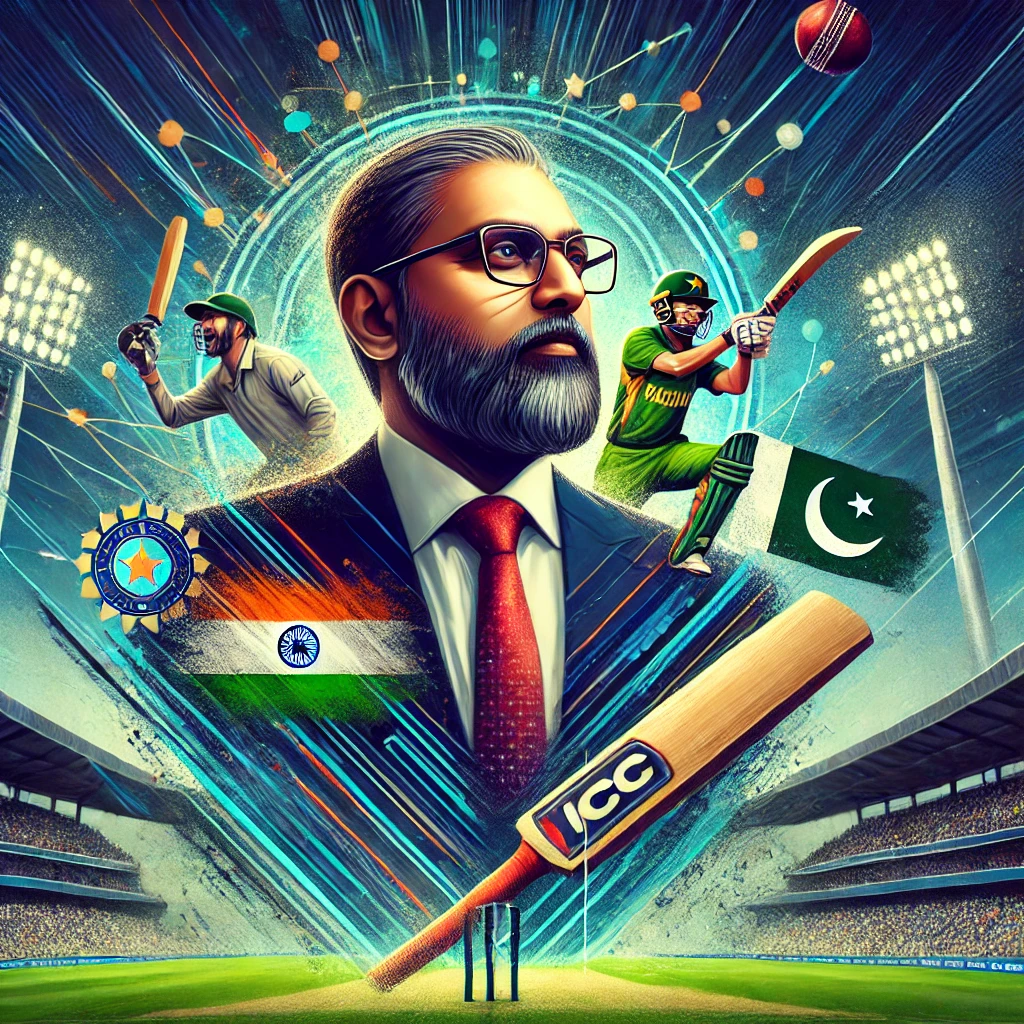
Cricket is more than just a sport; it is an emotion that resonates with millions globally. From the streets of Karachi to Melbourne’s stadiums, cricket transcends boundaries. However, the game is also shaped by strategy, politics, and diplomacy, which often influence its very essence. In this complex landscape, Jay Shah, Secretary of the Board of Control for Cricket in India (BCCI), plays a pivotal role. His influence in the International Cricket Council (ICC) is undeniable, and his vision has far-reaching effects. This blog explores Jay Shah vision for the ICC and its profound impact on Pakistan’s Champions Trophy prospects. We will examine strategic planning, the evolving international cricket landscape, and regional politics, highlighting Pakistan’s position under Jay Shah leadership.
The Rise of Jay Shah in Global Cricket
Jay Shah has quickly become a key figure in global cricket. He steers Indian cricket and shapes international policies at the ICC. Under his leadership, efforts to reshape international cricket have intensified. His focus is on profitability, market expansion, and inclusivity. Jay Shah aims to enhance cricket’s commercial appeal while preserving its traditional essence.
Shah’s influence goes beyond administrative duties. He promotes bilateral series that generate revenue and boosts ICC events through media rights deals and sponsorships. His vision creates a competitive yet commercially viable environment for cricket boards worldwide. This vision could reshape events like the Champions Trophy, especially concerning Pakistan’s participation.
Pakistan’s Journey Under the ICC’s New Direction
Pakistan, with its rich cricket history and passionate fanbase, is vital to global cricket. The team has displayed resilience and brilliance, often overcoming geopolitical challenges. However, under Jay Shah ICC leadership, concerns about political tensions influencing cricket have emerged.
The Champions Trophy, where Pakistan has excelled, could be significantly impacted by ICC policies under Jay Shah. Balancing politics and sports diplomacy is delicate. Shah’s approach blends strategic manoeuvring, pushing for more India-centric tournaments, while recognizing the need for diversity in major ICC events. The key question is whether this recognition translates into equitable opportunities for all nations, especially Pakistan.
Jay Shah Vision: A Double-Edged Sword for Pakistan?
Jay Shah vision for the ICC aims to make cricket a truly global sport. He seeks to break traditional boundaries and expand into untapped markets. This vision, though commendable, presents challenges for Pakistan. On one hand, Jay Shah push for more ICC tournaments creates opportunities for teams to showcase their talent. On the other hand, concerns about fair representation and the influence of political relations on sporting decisions arise.
For Pakistan, the Champions Trophy is crucial. The team won the title in 2017. However, under Jay Shah influence, qualification dynamics, venues, and scheduling might change, affecting Pakistan’s chances. ICC decisions on hosting tournaments or managing bilateral series often face scrutiny, especially when involving India and Pakistan.
The Economics of Cricket and Its Impact on Pakistan
Cricket at the ICC level is heavily driven by economics. Jay Shah emphasizes commercializing cricket and maximizing revenue through media rights, sponsorships, and global broadcasting deals. The IPL (Indian Premier League) model exemplifies this approach, blending sports and entertainment for massive financial returns. Shah envisions a similar model at the ICC level, making events like the Champions Trophy lucrative ventures.
For Pakistan, this economic model brings both opportunities and challenges. The opportunity lies in capitalizing on the financial boom such events generate. Pakistan’s participation in ICC events draws significant viewership and revenue. However, ensuring equitable revenue distribution and access to platforms where Pakistan’s talent can shine is crucial. ICC decisions under Jay Shah could impact Pakistan’s cricket economy, particularly in sponsorship deals, media rights, and fan engagement.
Media Rights, Broadcasting Deals, and Regional Cricket Dynamics
Media rights and broadcasting deals are key pillars of Jay Shah vision. Shah aims to maximize ICC revenue while creating an inclusive broadcasting experience. However, regional politics, especially Indo-Pak relations, complicate this vision.
Pakistan has faced challenges in broadcasting its matches in India, especially during ICC events. These sensitive broadcasting deals often lead to disruptions, affecting fan engagement and tournament dynamics. Shah’s focus on high-value media rights contracts is clear, but including all cricketing nations, including Pakistan, remains contentious. To expand cricket’s global footprint through media, inclusivity must be prioritized, ensuring Pakistan’s rightful place in international cricket.
Strategic Partnerships and the Champions Trophy
Jay Shah’s ICC vision involves creating strategic partnerships with cricket boards, media houses, and global brands. These partnerships aim to uplift cricket’s global appeal and ensure financial sustainability for the ICC and its members. The alignment of the ICC with the BCCI is particularly noteworthy. While this alignment increases cricket’s visibility and revenue, it raises concerns about one board’s influence over the cricketing fraternity.
For Pakistan, these partnerships could bring opportunities or challenges. BCCI’s dominance, if unchecked, could lead to an imbalance, affecting tournaments like the Champions Trophy, where Pakistan has a strong legacy. If the ICC under Shah continues prioritizing partnerships that primarily benefit a few boards, fair competition and global representation might be compromised. Pakistan’s participation in the Champions Trophy could be shaped significantly by these partnerships and the ICC’s commitment to equitable opportunities.
The Future of ICC Tournaments: A Balanced Path or an India-Centric Agenda?
Under Jay Shah’s leadership, the ICC has focused on expanding its tournament portfolio. The goal is to create a calendar that maximizes cricketing action and profitability. While Shah’s vision includes bringing more nations into the fold, concerns about an India-centric agenda have arisen.
For Pakistan, this presents both an opportunity and a challenge. The increase in ICC events provides more chances for Pakistan to showcase its talent. However, the challenge is ensuring these opportunities are not skewed in favor of more commercially powerful boards. Shah’s ability to balance the ICC’s growth agenda without sidelining teams like Pakistan will be crucial for global cricket’s future. The Champions Trophy has always embodied fierce competition and diverse representation, and maintaining that spirit is essential under Shah’s vision.
Navigating Pakistan Cricket’s Future in Jay Shah ICC
Jay Shah’s ICC vision is ambitious and filled with possibilities for global cricket’s future. However, it also brings challenges for teams like Pakistan, operating under unique geopolitical and economic constraints. Shah’s influence on ICC policies, tournaments, and cricket dynamics is evident and could shape Pakistan’s cricketing future.
As the Champions Trophy and other ICC tournaments evolve under Shah’s tenure, the focus must be on inclusivity, fairness, and the sport’s true spirit. Pakistan’s cricketing legacy and passion are too significant to be sidelined. The future will reveal whether Shah’s vision truly embodies a global perspective that embraces all cricketing nations or tilts towards regional biases. For now, Pakistan must navigate this new era of ICC cricket with strategic planning, diplomacy, and an unwavering commitment to excellence on the field.


bro good
Loved this post!
I agree with this.
Amazing content!
Very engaging!